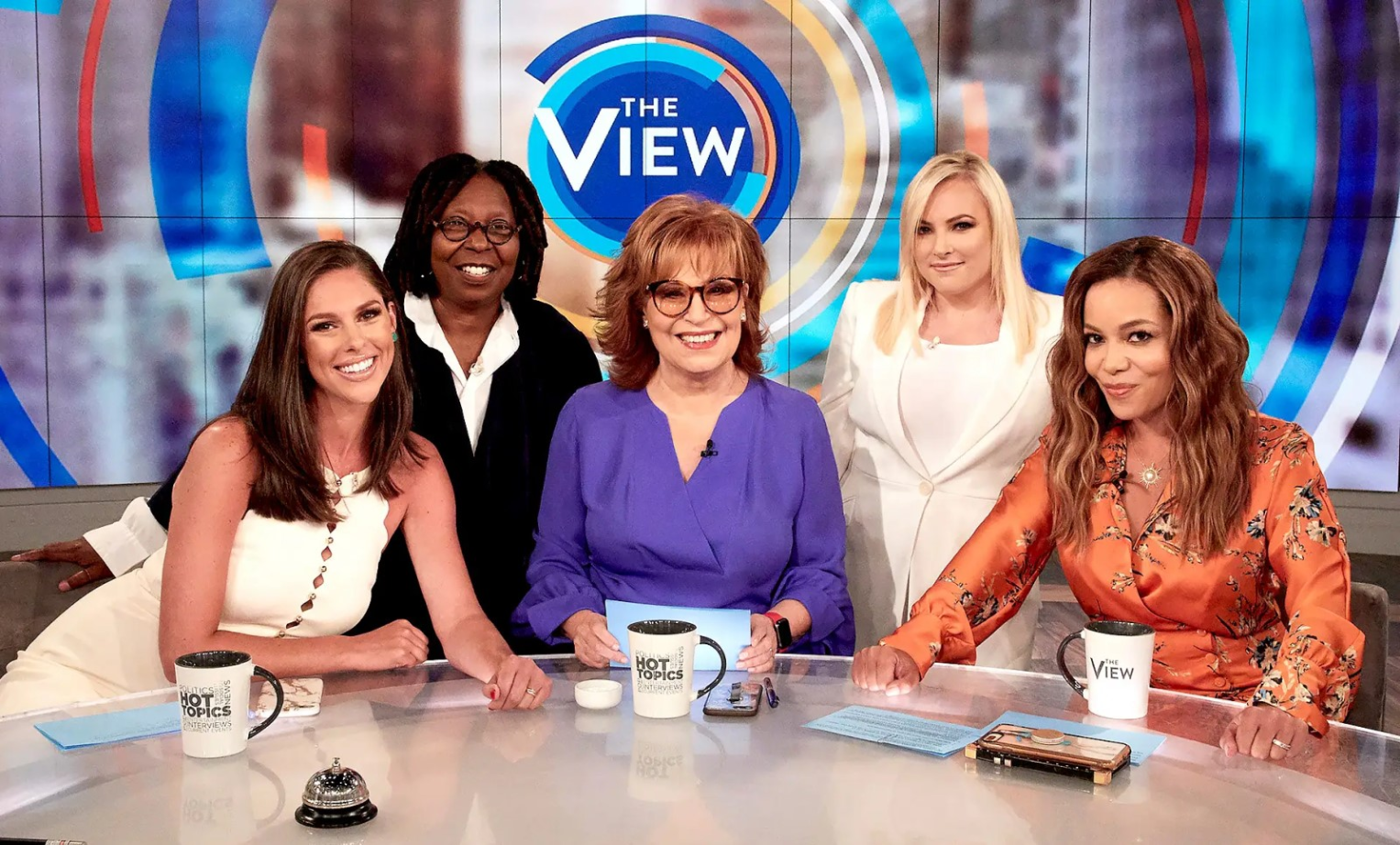Sunny Hostin’s Apology Triggers Legal Turmoil on The View Over Pete Heth Debate
In a controversial moment that has sparked intense debate, Sunny Hostin’s recent apology on The View has brought the show into a legal and political whirlwind. The segment quickly became a point of contention after Hostin and her co-hosts used what appeared to be a legal disclaimer as a shield to justify their personal criticism. This approach, which has stirred much discussion, raises important questions about the balance between opinion and accountability in political commentary.
I. The Controversial Moment
On a recent episode of The View, the hosts ramped up their criticism of President Trump’s cabinet appointments, focusing specifically on Pete Heth, a nominee for a senior defense role. Critics of the show suggest that the hosts have developed a new strategy: making personal attacks on live TV and following up with a “legal note” designed to protect them from any legal consequences. The latest segment on Heth featured a discussion based on a New York Times article and concluded with Hostin reading a legal disclaimer, which many felt was passive-aggressive in nature. The tactic, meant to shield the hosts’ remarks, only fueled the growing divide between partisan commentators and their critics.
II. Legal Disclaimers as a Political Shield
This tactic of using legal disclaimers after contentious commentary is not new, but it has drawn particular attention recently due to its more frequent use on The View. Supporters of this method argue that it serves as a safeguard for the hosts to express opinions without fear of legal repercussions. However, detractors view it as a way to cover up misinformation or biased attacks by hiding behind technicalities. One critic expressed frustration, stating, “It’s a way to dodge responsibility for personal jabs by shifting the focus from what’s being said to legal loopholes.”
This raises concerns about the nature of political discourse, where legal disclaimers may detract from the quality of debate, turning the focus away from issues and policies, and instead focusing on technicalities and legal protections.
III. The Target: Pete Heth
The subject of the controversy, Pete Heth, is a decorated Army veteran who has served in Iraq, Afghanistan, and Guantanamo Bay. He has also worked with nonprofit organizations, earning respect for his service and contributions. Despite his credentials, Heth became the target of personal criticism from the co-hosts, who questioned his character and leadership qualities. In particular, an email allegedly written by Heth’s mother was used to discredit him. The email reportedly criticized his behavior, which some commentators saw as an attempt to use personal family matters as a tool to undermine Heth’s professional integrity.
Critics of this approach argue that discussing family matters, especially those involving a mother’s reprimand, detracts from a meaningful discussion of Heth’s qualifications for the position he was nominated for. One voice in the debate pointed out, “Who hasn’t been scolded by their mom? Using that against him feels more like gossip than constructive criticism.” This highlights a growing frustration with the use of personal stories in political commentary, which some feel only serves to distract from the substantive issues that matter to voters.
IV. The Fallout: Media and Public Trust
The segment quickly ignited a polarizing reaction, with some applauding The View‘s bold approach, while others expressed concern over its impact on the credibility of the network. The debate over the segment comes at a time when the media is under intense scrutiny for bias, misinformation, and sensationalism. By using legal disclaimers as a shield, critics argue that the show risks eroding public trust and the quality of political dialogue.
Political strategists worry that relying on personal attacks, rather than focusing on policies, could deepen divisions among viewers and contribute to the polarization of political discourse. One analyst commented, “When media outlets prioritize personal attacks over substantive discussions, it not only damages the credibility of the network but also distracts from the real issues we face as a nation.”
V. Looking Ahead: Accountability in Political Commentary
The controversy raises important questions about the future of political discourse on national television. Will this trend of using legal disclaimers to shield personal attacks become the norm, or will there be a push for a return to more fact-based and policy-driven discussions?
The incident serves as a cautionary tale about the dangers of mixing personal grievances with political critique. As political commentary continues to evolve, there is growing concern among viewers that media outlets should focus on accountability and transparency, rather than sensationalizing issues through personal anecdotes. Critics believe that political commentary should prioritize facts, policy discussions, and the qualifications of candidates, not family dramas or personal attacks.
VI. Conclusion: A Call for Substance Over Sensationalism
The recent controversy surrounding The View and its handling of Pete Heth’s nomination serves as a reminder of the importance of maintaining accountability in political commentary. As the political landscape becomes increasingly divided, the public’s demand for substantive discussions over sensationalism grows louder. Viewers are seeking a higher standard in the media—one that upholds truth, integrity, and transparency, rather than relying on legal disclaimers or personal attacks to shield political bias.
In the end, the incident surrounding The View highlights a critical need for political discourse to evolve beyond surface-level sensationalism and address the substantive issues that truly matter to the country.
